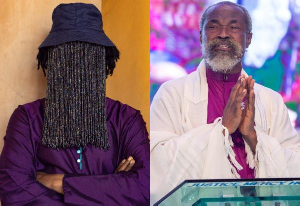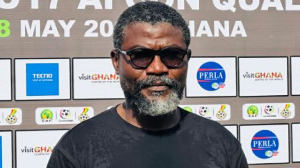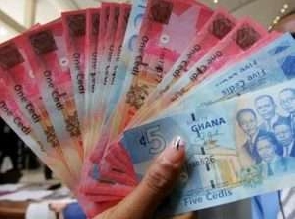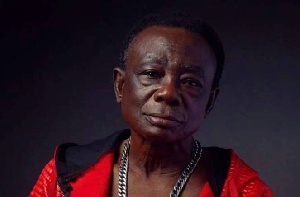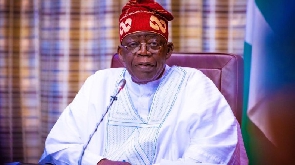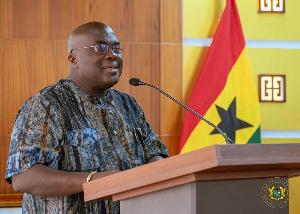IN THE SUPREME COURT OF GHANA, ACCRA - AD 2002, WRIT 3/2002
BETWEEN
STEPHEN KWAKU ASARE?????????? ??????????? PLAINTIFF
AND
PLAINTIFF’S ARGUMENTS OF LAW
Part 1: ISSUES
1. (a) The pleadings having been closed, the facts not being in dispute, and jurisdiction and locus standi not being in contention, the following issues are raised by the Plaintiff for determination:i) Does the temporary absence of the President from Ghana, when he is abroad on official duties, at a time when the Vice-President is also abroad, mean that the President and the Vice-President are both "unable" to perform the duties of President?
ii) When the President and the Vice-President are both absent from Ghana, must anyone else, particularly the Speaker, act as President?
(iii) Must someone be sworn in on the Presidential Oath, as President, to perform the duties of President when both the President and the Vice-President are outside Ghana?
(b) The Defendant raises the following additional issues:
iii) Whether or not the swearing-in ceremony of the Speaker of Parliament that took place in Parliament on Sunday the 24th day of February 2002 was regular and lawful?
v) Whether or not the Plaintiff has totally misconstrued Articles 60(8) and 60(l1) of the Constitution?
vi) Whether or not a situation of dual Presidency arises on a true and proper interpretation of Articles 60(8) and 60(l 1) of the Constitution?
vii) Whether or not on a true and proper interpretation of Articles 60(l 1) of the Constitution, the said Article should read thus:
"When both the President and Vice-President are unable to perform their functions owing to absence from Ghana or any other cause, the Speaker of Parliament shall perform the functions until the President or the Vice-President returns, or is able to perform those functions."
viii) Whether or not the appointment of the Speaker of Parliament, to perform the functions of the President,.was done regularly and in conformity with Articles 60(l 1) and 60(12) of the Constitution?
ix) Whether or not Article 60 of the Constitution is silent on the situation where both the President and the Vice-President are absent from Ghana at the same time?
x) Whether or not the swearing-in of the Speaker of Parliament to perform the functions of the President, the condition precedent to the swearing-in of the speaker had arisen, namely, that the President and the Vice-President were both unable to perform the functions of the President owing to being absent from Ghana?
PART 2: SUBM SSIONS
2. It is respectfully submitted that the answers to the issues set out in paragraph 1 are as follows:(i) No.
(ii) No.
(iii) No.
(iv) The swearing-in ceremony was not regular and lawful.
(v) Plaintiff has not totally misconstrued Articles 60(8) and 60(11) of the constitution.
(vi) On a true and proper interpretation of Articles 60(8) and 60(11) of the constitution, no situation of dual presidency arises, but on the Defendant’s interpretation one does. The Defendant’s interpretation must, with respect, be rejected.
(vii) A true and proper interpretation of Article 60 (11) of the Constitution should not read as the Defendant proposes, namely to interpret “unable” to include “absence from Ghana.”
(viii) The appointment of the Speaker to perform the functions of the President was not done regularly and in conformity with articles 60(11) and 60(12) of the constitution.
(ix) The Constitution is silent on the situation where both the President and Vice-President are absent from Ghana at the same time.
(x) The condition precedent to the swearing-in of the Speaker had not arisen since the President and the Vice-President were both able to perform, and the President was performing, the duties of President albeit from and while abroad.
3. The cardinal rule of interpretation of Constitutions, Statutes and Deeds is that words must be given their ordinary, clear, unambiguous, unequivocal and everyday meaning, without any glosses, additions or interpolations.
- Attorney General v. Tagoe [1984-6] GLRD 88, SC
Tuffuor v. Attorney General [1981] GLR 944, SC
Sallah v. Attorney General [1970] CC 55, CA sitting as SC
4. The dictionary meaning of "unable" is "not able to," "incapable of," "not in a position to. " And "able" means the power, privilege or opportunity to do something.
Black Law Dictionary
Oxford Advanced Learner’s dictionary of Current English
5. Accordingly, it cannot be said that when the President has merely traveled abroad, particularly when he is on official duties as Head of State and Head of Government, he is "unable" to act as President. Indeed, the President traveled to Singapore to meet his counterparts, the Head of State and Head of Government of Singapore; and he proceeded further to Australia to attend a summit conference of Commonwealth Heads of States and Governments. In this light, when the President traveled abroad, he was not unable to perform his duties as President. He was indeed performing his duties as President.
6. The conduct of international relations is by the 1992 Constitution, and by long standing principles of constitutional and public international law, the prerogative of the executive branch of government, whose head is the President of Ghana. This buttresses the submission that for the President to travel abroad to conduct international relations is to perform his duties as President.
Constitution, Article 73
Wade E. C. S. and Bradley, A. W., Constitutional and Administrative Law (London: Longman, 1996) pp 324-325).
7. To contend that while the President is abroad he is "unable" to perform his duties as President will lead to ridiculous results if followed to its logical conclusion. For example:
- (a) it will mean that when foreign Heads of State and/or Government (as the case may be) visit Ghana, our law, as judicially upheld, will not recognize them as Heads of State and/or Government because while abroad they are "unable" to perform their functions as such. It will also mean that the much-touted visits to Ghana over the last several years of such Heads of State and/or Government as (in alphabetical order) Presidents Clinton, Eyadema, Obasanjo and Wahd; Queen Elizabeth; and Prime Minister Blair were visits not by these persons performing their roles as Heads of State and Government. On the other hand, if the just-mentioned Heads of State and Government were in Ghana performing their official roles, then, on the basis of reciprocity, when Ghana's President travels abroad he cannot be said to be "unable" to perform his duties as President;
(b) the implications for travel for ministers and indeed all public servants are grave and momentous;
(c) the President need not be in the capital city or the Castle as the seat of government to perform his functions as President. If this is the case, it will mean that while the President is outside the capital city or even within Accra but outside the Castle he is unable to perform his functions as President;
(d) if the President and the Vice President are said to be unable to perform their duties on account of their travel, then procedures will have to be commenced under the Constitution to effect their removal and replacement.
Tuffuor v. Attorney General [1980] GLR 637, SC
9. It is submitted that the President of Ghana remains President of Ghana, wherever he is, within or outside Ghana, unless his term of office expires or he dies, resigns or is removed in accordance with the provisions of Articles 66 and 69 of the 1992 Constitution.
10. It is submitted that the high, dignified and delicate office of the President should not be so easily and so readily filled due to temporary official travels of the President; and that the Presidential Oath should not be easily and readily administered to persons on account of temporary official travels of the President.
11. When the President travels abroad it does not mean that he is unable to direct affairs in Ghana. Through modern technological devises, he can direct affairs in Ghana. In fact, it may be that the President may more readily be in touch with the Castle, Accra from Washington DC or London than he may be from Saltpond or Bimbilla.
12. In fact, recently, in the immediate aftermath of this case having been filed, and Particularly around March 1 to 3, 2002, when the Supreme Court ruling in the case of Tsatsu Tsikata v Attorney-General, Writ 2/2002, SC was delivered, various mass media reported that President Kufour, who was then in Australia, had instructed the Attomey-General to pursue a review of the Supreme Court decision. This further goes to show that the President was in actual control of affairs in Ghana, not the Speaker, and it cannot be said that he was, by virtue of his travel, unable to perform his duties as President. On the contrary, though abroad, the President was in full command and control of affairs in Ghana and he was issuing directives and instructions on his Ministers and subordinates as he deemed fit. That President Kufour was in full charge of the executive arm of government though abroad goes beyond a presumption or inference. It is an established and conclusive fact.
Evidence Decree, 1975 (NRCD 323), s. 18.
13. It is submitted that a distinction ought to be drawn between a mere absence of the President and Vice President from Ghana and a disabling absence of the President and Vice President. It is only the latter that will cause the Speaker to succeed and assume the office of President as contemplated by Article 60(l 1) and (l 3) and not the former.
14. It is acknowledged that the swearing-in of the Speaker on or about February 25, 2002 may have been well-intended, rather than it being a deliberate, flagrant and contemptuous violation of the Constitution. However, it is submitted that the purported said swearing-in was occasioned by a misappreciation and misapprehension of the law and that:
- iv) the mere temporary official travels of the President at a time when the Vice President was abroad did not create in law or fact a void to be filled; and
v) it was premature for the Speaker to assume the office of President and to have been sworn-in as such.
vi) that Ghana has one President, namely President Adjetey, who constitutionally replaced and ousted President Kuffour. It is submitted that this position of a “constitutional coup” is constitutionally, legally and politically untenable; or
vii) that Ghana has two Presidents, President Adjetey and President Kuffour, the former in praesenti here in Ghana; the latter, in absentia, perfoming his Presidential duties abroad. It is further submitted that this position is constitutionally, legally and politically untenable since a situation of dual presidency will create untold chaos and confusion since both will have the right to sign bills into law, to re-shuffle cabinet, to conduct international relations, and even to declare states of emergency and war; or
viii) that Ghana has one President, namely President Kuffour, and that the purported swearing-in of the Speaker as President is unconstitutional, void and of no effect. This is the most tenable proposition.
Nartey v. Attorney General & Justice Adade [1996-7] SCGLR 320, SC
17. Ghana’s Presidential system is one of an Executive President not a Ceremonial President. A scheme of dual or multiple Presidents, each exercising complete executive powers, is a sure recipe for disaster. On the other hand, it will be farcical for the Speaker, the Chief Justice, the Deputy Speakers or the most Senior Justice of the Supreme Court after the Chief Justice, as the case may be, to be sworn-in as President and not assume and exercise the powers of President pending the return of the elected President to Ghana. In other words, a constitutional design vesting real, final Executive Presidential powers in the hands of many persons, which powers are exercised by them, is dangerous; and a constitutional design vesting real, final Executive Powers in the hands of many persons but with the expectation that all such persons besides the elected President shall not exercise their real, final executive powers is, farcical and dishonest.
18. It is submitted that an interpretation of the constitution that allows or lends credence to a regime of multiple presidents should be avoided, otherwise untold chaos, confusion and danger could be unleashed onto Ghana's constitutional, political and legal order.
19. The effect of Article 60(6), (8) and (9) is that when the President merely travels, the Vice-President performs his duties as President, but even the Vice-President is not sworn-in as President. The Vice-President is only sworn in as President when the latter dies, resigns or is removed, but not merely when the President travels. It is therefore untenable for the Speaker to be sworn-in as President merely on grounds of official travels by the President or Vice President or both of them.
20. It is submitted that it is constitutional and reasonable for the Vice-President to act as President when the President travels because the President and Vice-President are elected to office on the same slate and furthermore the constitution specifically mandates the Vice-President to perform the functions of President when the President is absent from Ghana (Article 60(l),(2) and (8)). But the same does not hold for the Speaker.
21. Furthermore, article 60(l 1) and (13) of the Constitution provides that the Speaker is to perform the duties of President only when the President and the Vice President are "unable" to perform their duties as President; and that when the Speaker succeeds to the office of the President on the death, resignation or removal from office of the President and the Vice President there shall be a presidential election within three months after his assumption of office.
22. As previously submitted, mere temporary official travel by the President, and the Vice President or one of them does not constitute being "unable" to perform the duties of President. It is further submitted that Article 60 must be construed as a whole and that the phrase "unable to perform the duties of President" must take its colour from and must be interpreted along the lines of death, resignation and removal. Employing the maxims ejusdem generis and noscitur a sociis, unable to perform the duties of President will include such scenarios as grave or terminal illness affecting physical or mental capacity, kidnapping, absconding, missing – but under no circumstances, in any event, can the phrase “unable to perform the duties of President” be interpreted to include the temporary travel of the President to meet with other Heads of State and Government.
- Bilson v. Apaloo [1981] GLR 24, SC
Tuffuor v. Attorney-General [1980] GLR 637, SC
Sallah v. Attorney-General [1970] CC 55, CA sitting as SC
23. By employing the expressio unius est exclusio alterius rule in interpreting Articles 60(6), (8), (9), (1 1) and (13), unlike the Vice President who can perform the duties of President when the President is "absent" from Ghana, or is "unable" to perfom his presidential duties, the Speaker is only called upon to perform the duties of President when both the President and the Vice President are "unable" to perform the duties of President. If the framers of the Constitution wanted to mandate the Speaker to perform the duties of President merely on grounds of Presidential and Vice-Presidential absence from Ghana (particularly on official duties), they would have expressly said so, as they did in the case of the Vice- President, but which they did not in the case of the President.
Ali-Jiagge v. Inspector of Police, Suit No. 16/81 decided 26 March 1990, SC.
24. It is also submitted that in the light of Article 58(3) of the Constitution the President is not required to personally perform all the duties of President. The President can assign duties or delegate to members of the executive arm including the Vice President, Ministers, Presidential Staffers, and others within the executive branch.
25. If any of the duties or the functions of the President is required to be done by the President personally, then those functions may not be ceded to anyone else. If the President and Vice-President are abroad at the material time, then the matter will have to await the return of either the President or the Vice-President, and one of them must then immediately return to Ghana. Indeed when a pressing, urgent or emergency situation presents itself requiring the special attention of the President, the President and the Vice-President are, or one of them is, required to be in Ghana or to immediately return to Ghana if abroad.
26. A President who is traveling, when the Vice-President is also absent, is not required by the Constitution to transfer, delegate or cede his Presidential powers to, or share his Presidential powers with, anyone and specifically not the Speaker. There is also no constitutional or reasonable basis for unbundling the functions of President when he travels or at any time.
27. When the President travels abroad at a time when the Vice-President remains in Ghana, it cannot be contended that the President is “unable” to perform his duties as President. Similarly, when the Vice-President travels abroad at a time when the President remains in Ghana, it cannot be contended that the President is “unable” to perform his duties as President. It follows therefore that “travel” does not equate with inability, particularly when it is an official trip. It follows further that when both the President and the Vice-President are abroad, particularly when it is an official trip, it cannot be contended that the President is “unable” to perform his duties as President. To state it categorically, it is submitted that the President and Vice-President do not cease performing or being able to perform their functions when outside Ghana, particularly when at least one of them is on an official trip abroad.
28. The doctrine of separation of powers is fundamental in constitutional law. It is conceded that the three organs of government ? Judiciary, Legislature and Executive, ? do not exist in water-tight compartments and that there is some contact between them and some checks and balances. Nevertheless, it is submitted that an interpretation ought to be placed on article 60 (11) so that it does not occur so readily and so easily for one organic head (in this case the Speaker of Parliament) to assume, succeed to and perform the whole functions of another organic head (in this case the Executive President) merely on the temporary, official travel of the President and the Vice-President. It is submitted that to do otherwise will undermine the doctrine of separation of powers.
- Montesquieu, The Spirit of Laws (1748)
Appadorai, A. A., The Substance of Politics (Oxford: OUP, 1975) pp. 516-522 Harvey and Barther, The British Constitution (London: Macmillan, 1977) pp 391-439.
29. In interpreting the Constitution as a living document, not only past and present events, but also future possibilities must be kept in mind. While it is the case that the present and previous Executives and Parliaments were controlled by the same party (respectively the NPP and NDC), it is possible that in future - as indeed happens from time to time abroad, say the USA - the President may come from one party and the Speaker of Parliament from another. Indeed when Bill Clinton, the immediate past President of the USA was President, though he was a member of the Democratic Party, Congress was controlled by the Republican Party. It will be dangerous for a Speaker with a completely different political orientation and agenda, and worse still for an ambitious Speaker, to be sworn-in as President when the incumbent President and his Vice-President merely travel abroad.
30. When an oath is properly and duly administered to and sworn by a person, that person obtains the status and is conferred with the full powers relative to that office; hence oaths are to be sparingly administered and sworn. It is therefore submitted that an oath ? most notably the Presidential Oath ? must not be readily administered and quickly sworn, but rather must be sparingly administered to and solemnly sworn by only those duly qualified by election or succession of the high, dignified and delicate office of President. The schedule of the constitution dealing with the Presidential Oath is an integral part and parcel of the constitution.
- Kuenyehia v. Archer, Suit No. 5/92 decided 25 May 1993, SC
- Busia, K. A. The Position of the Chief in the Modern Political System of Ashanti (London: OUP, 1951) Sarbah, J. M., Fanti Customary Laws. (London: William Clowes, 1904).
33. It is further submitted that the ready swearing-in of the Speaker, as President, is not rooted in Ghana's 1992 Constitution. The Constitution contemplates that the Presidential Oath will be sworn only once every four years - except in the event of the death, resignation or removal of the President.
34. It is submitted that the Right Honourable Peter Ala Adjetey has not in law or in fact been elected to or succeeded to the high office of President and accordingly should not have been administered, and should not have sworn the Presidential Oath.
PART 3: PRAYER FOR RELIEF
35. Wherefore it is submitted that on a true and proper interpretation of Article 60(11), in the light of Article 58(3) and Article 60 as a whole, that this honourable and august court grant the reliefs sought in paragraph 1 of Plaintiff’s Statement of Case, namely for:- ix) A declaration that upon a true and proper interpretation of Article 60(l 1) of the 1992 Constitution, the purported swearing-in of the Speaker of Parliament, the Right Honourable Mr. Peter Ala Adjetey, as President of Ghana, on or about Monday February 25, 2002, is inconsistent with, or is in contravention of, the said provision of the Constitution and is therefore unconstitutional, void and of no effect.
x) A perpetual injunction to restrain the Speaker of Parliament, the Right Honourable Peter Ala Adjetey, and any other person succeeding to the Office of Speaker of Parliament from performing the functions of President of the Republic of Ghana except in the event of the President and the Vice-President being unable to perform the functions of the President.
xi) Such other ancillary or consequential orders or directives as the court may deem fit to give.
PART 4: LIST OF AUTHORITIES
1. Constitution, 1992.
2. Evidence Decree, 1975 (NRCD 323).
3. Interpretation Act, 1960 (CA 4) as amended
4. State Proceedings Act, 1998 (Act 555).
5. Alii-Jiaggev v. lnspector-General of Police Suit No. 16/81 decided 26 March 1990, SC.
6. Attorney-General v. Tagoe [1984-6] GLRD 88, SC.
7. Attorney-General v. CHRAJ (No. 2) [1998-9] SCGLR 894.
8. Bilson v Apaloo [1981] GLR 24, SC.
9. Biney v Biney [1974] 1 GLR 318.
10. Ekwam v. Pianim (No. 1) [ 1 996-7] SCGLR 117.
11. Ekwam v. Pianim (No. 2) [1996-7] SCGLR 120.
12. J. H. Mensah v. Attorney-General [1996-7] SCGLR 320.
13. Kuenyehia v.Archer Suit No.5/92 decided 25 May 1993, SC.
14. Kwakye .v Attorney-General.
15. Mekkaovi v.Ministry of Internal Affairs [198 1] GLR 664, SC.
16. Nartey v. Attorney-General & Justice Adade [1996-7] SCGLR 3320, SC.
17. Republic v. Tommy Thompson Books Ltd (No. 2) [1996-7] SCGLR 484.
18. Sam (No. 2) v. Attorney-General [2000] SCGLR 305.
19. Sallah v Attorney-General [1970] CC 55, CA sitting as SC.
20. Tuffuor v. Attorney-General [1981] GLR 944, SC.
21. Appadorai, A. The Substance of Politics (oxford: OUP, 1975).
22. Bimpong-Buta, S. Y.., The Law of Interpretation in Ghana (Accra: Advanced Legal 1995).
23. Black, Henry C. Black’s Law Dictionary (6th ed) (St. Paul, Minn: West, 1990).
24. Busia, K. A., The Position of the Chief in the Modern Political System of Ashanti (London: OUP, 1951).
25. Harvey, J., and barther, L. The British Constitution (London: Macmillan, 1977).
26. Hornby, A. S., Oxford Advanced Learner’s Dictinary of Current English (Oxford: OUP, 1974).
27. Montesquieu. The Spirit of law.
28. Sarbah, J. M., Fanti Customary Laws. (London: William Clowes, 1904).
29. Wade E. C. and Bradley, A. W. Constitutional and Administrative Law. (London: Longman, 11th edition, 1996).
Dated at Accra this 15th day of April 2002.
Dr. P. E. Bondzi-Simpson, Lead Plaintiff Attorney Jacob Acquah-Sampson, Plaintiff Attorney



